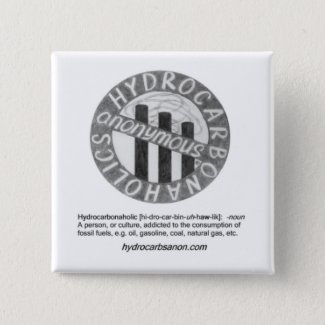The US electricity grid has been attracting a lot of attention lately—and even some new funding, including some folded into the recent federal stimulus bill. Why not? It's old, it's creaky, it's unreliable; it's been suffering from insufficient investment for a couple of decades now.
Particularly if we are going to make increased use of alternative fuels and renewable energy sources—like wind and solar—it makes sense that we should be upgrading the ability of the national system to store energy, to move it around efficiently, to enhance real-time communication and meaningful data sharing, between both utilities themselves and between utilities and their customers. The grid needs to be bigger, stronger, and smarter.
Or does it?
Let's start with “bigger.”
I worked in data communications for most of the 1980s, which was a lot like working for a power company. Most of what I did had to do with installing or maintaining terminals that were hardwired to centralized mainframe—Big Iron—computers. When you needed computing power, you plugged in to this utility—and hoped that the system was up, that there weren't too many other users, that no one was doing anything computationally intensive.
Then came the IBM PC, in 1981, and the first Apple Mac, in 1984. Pretty soon, you had more computing power on your desk (in your cell phone, in your watch) than it had taken us to reach the moon.
The build-out of global computer and communication networks has added a huge degree of resilience to our access to computing power. I'm not connected to one machine by one wire. While network problems occur all the time, they are largely invisible to us. The broadband connections that we use are dynamic and, for the most part, “self-healing.” If I have problems with my computer. . . well, we have more computers than people in my house—or there's my office, or the library, or Kinkos.
Mainframe computing hasn't quite died. But it has certainly diminished in importance.
So why should I get my power from a central location?
I would suggest that this has more to do with “installed base,” entrenched interests, and habit, than it does with an objective assessment of how best to provide electricity to the country.
We're told we need a bigger, newer, “reinforced” power grid to do things like move wind energy from the plains and solar energy from the deserts to cities on the coasts. I'm not sure about that. Distributed power production has many of the same benefits inherent in distributed computing. We might do better to have power markets and collectives than to rely on the benevolence of industrial conglomerates (recall Enron and Grandma Millie).
I'd like to see solar shingles—or thin film photovoltaics—as the only thing we ever put on southern facing roofs, going forward; retrofitting, certainly for government buildings, would also make a fine jobs program. For residential power, coastal areas could supplement this with offshore wind and wave energy. Cheap availability of wind power in the middle of the country might be just the incentive we need to revive American industry.
A smarter grid does make sense to me (or a smarter network of smaller power networks, loosely interconnected). Every building ought to be producing, as well as using, energy. A number of systems have been developed to use the batteries in electric cars for energy storage and load balancing. In a system designed at MIT, for example, your car would make ongoing calculations about when to enter the electricity market, as either a buyer or a seller.
It has been said that we are asking a 19th century power grid to deal with 21st century problems, and that the answer is to upgrade this older technology.
Perhaps we should instead adopt, or develop, 21st century solutions.
Show people what you believe! Hydrocarbsanon Gear:
5% of proceeds from any purchase at our stores at Skreened, Cafepress, Zazzle, or Spreadshirt goes to e-BlueHorizonssm which uses the money to retire greenhouse gas credits.
Wednesday, May 13, 2009
Bigger Better Power Grid? Maybe Not
Subscribe to:
Post Comments (Atom)








2 comments:
Good article, Doug. I couldn't agree more. Best sentence? " Every building ought to be producing, as well as using, energy." It is just not complicated. Entrenched interests is so right. There might be a few exceptions to the "local energy" model, but for the most part there is renewable potential everywhere. At least on some scale.
What about some kind of compromise? What about regional grid "networks" that could spread the juice around a bit for the exceptions?
On better days, I like to see myself as a functionalist; might need some bigger facilities for industrial purposes--and urban centers like NYC, certainly pose a challenge.
Don
Post a Comment